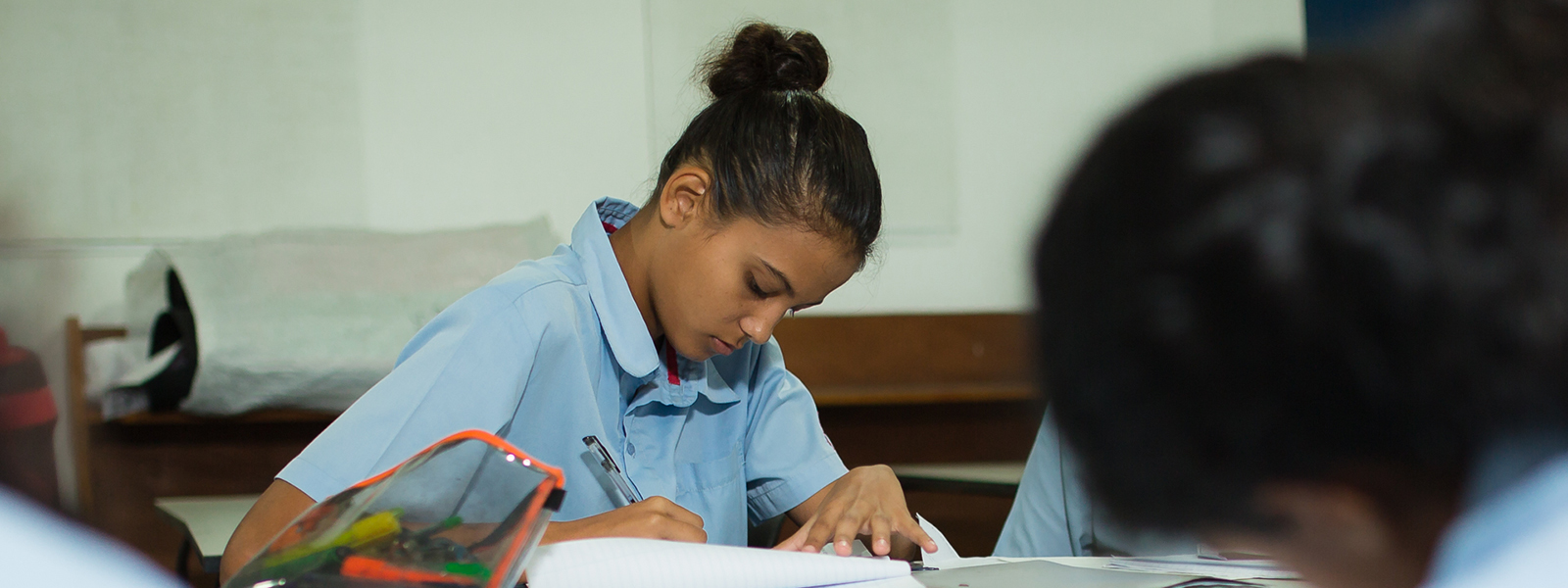Academic
AcademicTeaching our students how to learn is just as important as teaching them what to learn. Rather than simply loading their memory with the thoughts of others, we try to encourage all our students to think for themselves, and to ask questions as well as to provide answers.
To stretch the minds of our students and to keep them interested in their own education, we strive to make the classes as interactive and varied as possible. Different methods are used by different teachers who share the same objective – getting the best out of each student.
We understand that our students need to take responsibility for their own learning to be ready for university and the challenges ahead. We nurture self-motivated students who are used to working independently and whose genuine interest in their subjects makes them life-long learners.
We aim to provide the best possible education we can to each and every one of our students, individually tailoring each student’s curriculum to meet their own personal needs. With the highest teacher to student ratio of all leading international schools in Colombo, we are committed to providing all students with the individual attention they require. No student is too much trouble; no student is left ignored in the corner; no student is given up on. We expect every student to give their best at all times and give them all the help they need to ensure they do.
Curriculum
Curriculum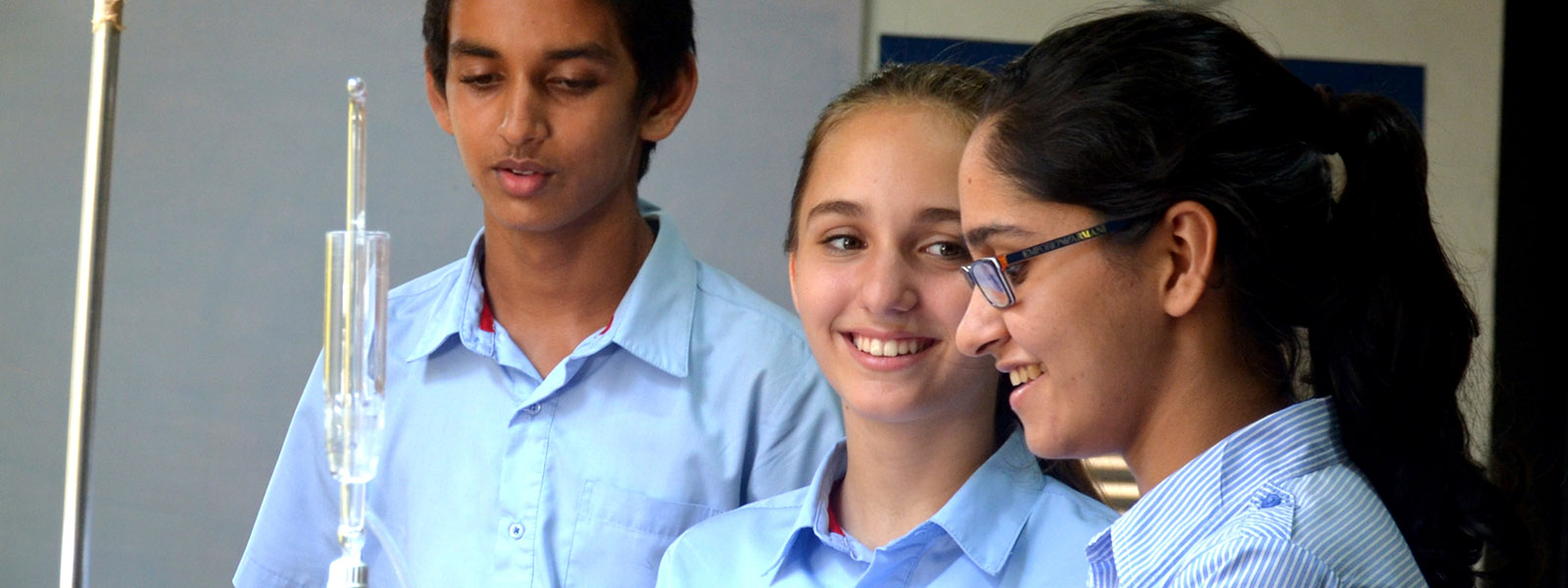
Elizabeth Moir School has a progressive international curriculum that blends new and innovative approaches to learning with a traditional focus on basic skills such as grammar and arithmetic. We recognise the central importance of students learning key skills they will need later in life but also that school should still involve learning facts, and aim to retain the best of both conventional and modern practice. The curriculum is regularly updated to stimulate students' interest by exposure to the latest cutting-edge developments in each subject, from Artificial Intelligence in ICT to Climate Change in Geography.
Junior School
The Junior School uses British textbooks for Mathematics and English. Literacy and Numeracy are the main focus of the curriculum throughout the school. Art, Music & Movement, Drama and PE are a formal part of the curriculum throughout the school, while Swimming classes begin in KG1.
Where appropriate, the school uses cross-curricular techniques when studying various topics. In KG1 and KG2, these topics take place in Environmental Studies, and for Junior 1 - Junior 3 in General Knowledge. Junior 4 and Junior 5 study History and Geography separately. Current topics include: People Who Help Us, Dinosaurs, Planet Earth, Civil Rights, Ancient China, The Vikings, The Rainforest, Birds and Ancient Egypt
Senior School
The Senior School follows British syllabuses that are adapted to the school's Sri Lankan context. Students gain the knowledge they need to compete in the fast-changing 21st century global village without neglecting the customs and heritage of the country they live in. Using examples and case studies from Sri Lanka and other Asian countries in Geography, for example, ensures that the students can see how what they learn is relevant to their own lives.
In the Arts, we nurture and encourage students' originality, creativity and free thinking, like the top British schools. In Mathematics, Science and Technology, however, we appreciate that standards are now often higher in India, China, Japan and Korea and ensure we keep ahead of the latest advances in these countries.
Forms 1-3
Coming to the Senior School involves lots of exciting changes for our students. Students have the chance to do experiments in fully-equipped Science laboratories and learn the basic scientific method while learning about the wonders of the world around them. In English, while there is still a strong emphasis on basic writing skills, students also have their first taste of Literature, studying texts as diverse as Othello by Shakespeare and To Kill a Mockingbird by Harper Lee. Rather than studying English Kings and Queens in History, students study topics more relevant to them, including the Holocaust and the Arab-Israeli conflict.
In addition to English, Mathematics, Science, History, Geography and ICT, students in Forms 1-3 also have the choice of starting to learn French, Sinhala or Tamil. They also attend PE, Swimming and Art classes as part of their curriculum.
Forms 4 & 5
In Form 4, students begin the IGCSE course set by Edexcel, the examining body that includes the former London Examinations. IGCSE is recognised by universities and employers around the world and students' results in this examination are the first step to university admission. The course lasts two years with students taking the examinations at the end of Form 5.
English Language and Mathematics are compulsory for all students. Students must choose at least six more subjects from the following list: Further Pure Mathematics, English Literature, Physics, Chemistry, Biology and Human Biology, History, Geography, ICT, French, Sinhala, Tamil and Art.
IGCSE Handbook6th Form
6th Form students study the GCE Advanced (A Level) course set by Edexcel. These qualifications are recognised by universities in Britain, the USA, Australia, Singapore, Malaysia, India, Canada, and elsewhere.
Students must select 3 or 4 subjects from: Mathematics, Further Mathematics, Physics, Chemistry, Biology, History, English Literature, Geography and Economics.
These are the core academic subjects recognised as being most academically rigorous by top universities. Most British universities now have lists of 'non-preferred' subjects including Commerce, Accounts, Psychology and Law. Students who take one of these subjects are at a disadvantage, when applying, and students who take two are not even considered, so this is why we do not offer them.
Please click here to download the school's handbooks with more details on the IGCSE and A Level courses.
A Level HandbookBeyond the Curriculum
Beyond the Curriculum
The Curriculum is just the starting-point of our students' education, not a limit to their ambitions. We encourage all students to pursue their interests further through independent reading and research, and provide a wealth of reference material in both Junior and Senior School Libraries, including international newspapers and periodicals.
Students' interest in current events and the world around them is aroused from their first years in the Junior School by the weekly "Junior Whizz" questions for children in KG2 and above. By the time they reach Junior 5, students have weekly Current Affairs quizzes. There is also an annual written General Knowledge quiz.
At the Senior School, a different class presents a summary of the latest news to the rest of the school in a Current Affairs Assembly each week. There are also Theme Weeks each term that focus on important topical issues, the latest developments in the subjects students study or cross-curricular topics. Themes have included Nanotechnology, Genetic Engineering, Sustainable Development, Nuclear Proliferation and The Renaissance. Students also have the opportunity to listen to internationally recognised experts in their fields speak in our Life Studies programme.
The annual Inter House Quiz is always a much anticipated event as the use of lockout buzzers creates considerable tension and excitement. There is also an annual School Quiz taken by every student in the school, allowing the Form 1 students to compete against the Upper 6th
The Senior School also has an active Coding and Robotics Club. Given the major role that technology plays in our lives and the fact that employers are increasingly looking for employees who have coding and computational skills, these clubs provide students with the appropriate stimuli and tools required to develop their skills.
Facilities
FacilitiesSenior School
Classrooms
In the Senior School, classrooms are subject-specific and contain resources relevant to the field, from displays to 6th Form Reference Libraries. All classrooms have computers, internet connections and multimedia facilities, including projectors where needed for teachers to use the most up to date videos and presentations. Even the layout of students' desks reflects the approach of the individual teacher, from horseshoe shapes to enable whole-class discussion to clusters to facilitate groupwork. Each student at the Senior School is also given a locker to store personal belongings.
Library
At the Senior School, the Library serves as both a reading room and a place for students to study. It subscribes to several local and international newspapers and periodicals and has encyclopaedias and a wide range of reference material relevant to all the subjects taught in the school, as well as computers for students to research on the internet. It also has a well-stocked fiction lending library based on recommended books for students of different ages. In addition, there are 6th Form Reference Libraries maintained by different departments, with books and periodicals related to the A Level syllabuses.
Science Labs
On the ground floor of the main teaching block, 'The Barn', there are four large purpose-built Science Laboratories for Chemistry, Biology, Physics and General Science. They are fully equipped for A Level practical classes, including an oscilloscope, photometer, respirometer, light gates, ripple tanks and Boyle's Law apparatus. Experiments could range from dissecting a heart or eye to distillation, titration or synthesis of an azo dye. Each laboratory has separate teaching and practical areas to ensure that practical demonstrations and experiments can be incorporated into every class, not only set practical lessons.
Computer Rooms
There is a large and fully-equipped Computer Room, which is available for use by teachers of all subjects and for students to work independently, as well as for ICT classes. It contains the latest hardware and software for applications from desktop publishing and web design to film and sound editing, graphics and animation.
Junior School
Library
The Library has a warm and welcoming environment to promote children's love of reading and contains both the latest age-appropriate fiction and extensive reference material on the topics studied by the students. Every student is helped to choose books to borrow every week and Early Learners to KG1 are given a special 'Book Bag' so that taking books home becomes a special event. The Library was recently given a new look and is regularly restocked with new publications, often personally chosen by the Head of the Junior School, based on recommendations from educational specialists.
ICT Room
The ICT room has a broadband internet connection and the latest LED monitors and is fully equipped to cater for the needs of all classes. While the younger classes can engage in online activities to help them develop key skills in English and Mathematics, older students focus on software such as the latest versions of Word, PowerPoint, Excel, Publisher and Movie Maker. Junior 4 and 5 also learn basic programming skills with PC Logo.
Science Room
There is a separate Science Room, which students can visit, that holds many resources to help keep the children fascinated in the subject. As well as an incubator with enough room to hatch 16 eggs, there is a water turbine, stethoscopes, interactive models of the solar system, sphygmomanometers (for measuring pressure), generators and a partial skeleton.
Classrooms
In the Junior School, each year has their own classroom, which is their home in school. All academic subjects, including Science, are taught in this classroom. The classrooms all provide a fun, lively and visually stimulating environment in which to learn, with colourful furniture and posters. Frequently updated displays of the students' work encourage them to take pride in what they do and its presentation.
Educational Trips

Throughout History, Sri Lanka has been admired for its natural beauty and for containing so much variety within a small area - from beaches to rainforests, from the Cultural Triangle to the Hill Country. Every year we take students on educational trips around the whole island to take advantage of all these wonderful opportunities
Students learn far more by seeing a site for themselves and doing their own fieldwork than they ever can in a classroom. We aim, therefore, to take students on trips as often as we can, whether it is an overnight trip to a remote area or a simple walk down to the canal that runs next to the Senior School to study its flora and fauna.
The Early Learners annual visit to Dehiwala Zoo is a real highlight of the year for our youngest class, from the excitement of going on the school bus for the first time to seeing their favourite animals. Trips continue throughout the Junior School: Pre KG visit the Aquarium and the supermarket, KG2 visit temples, a church and a mosque as part of their education into different faiths, and Junior 2 take an excursion to Thalangama Lake to learn more about birds. There are also trips to streams and a plastic factory.
At the Senior School, History students go on annual trips to Polonnaruwa and Anuradhapura and other nearby sites, as part of their study of Sri Lankan History each Summer Term. As well as conducting their own independent fieldwork, Geography students go on regular visits to rivers, coasts, factories and national parks, investigating issues as diverse as the environmental effects of tourism, corporate social responsibility and the impact of the tsunami. A Level Biology students go to the Genetech laboratory in Colombo, a pioneer in genetic engineering, to witness DNA replication and genetic testing.
Senior School students also make an annual trip to Jaffna. This trip serves to build friendships and establish ties between Elizabeth Moir School, St John’s College (SJC) and Chundikuli Girls College (CGC) in Jaffna. The students spend a great deal of time in fellowship with their peers, as well as visiting key historic sites including the fort, the library, Point Pedro, Nallur Kovil, the Thondamanaura Mohan Ashram, the temples on Nainativu/Nagadeepa and more. In turn, students from St John’s College Jaffna journey to Colombo for a reciprocal field trip which includes a tour of Colombo and Galle.
Students also have the opportunity to go overseas. There is a regular trip to Paris for French students to practise their language skills and visit the sites they have learned about in class, such as Versailles and La Tour Eiffel. Science students also attend the Science Camp organised by the National University of Singapore every other year. They gain valuable insight into university life as well as working in some of the best laboratories in Asia and listening to lectures by world-renowned experts.
There are also Class Trips at the end of the year to reward the students for their hard work and strengthen class unity and team spirit. Although the beach remains a popular destination, classes increasingly opt for more adventurous Outward Bound activities from canoeing and climbing to paintball, while Leisure World is a popular destination for the Junior School
Student Progress
Student Progress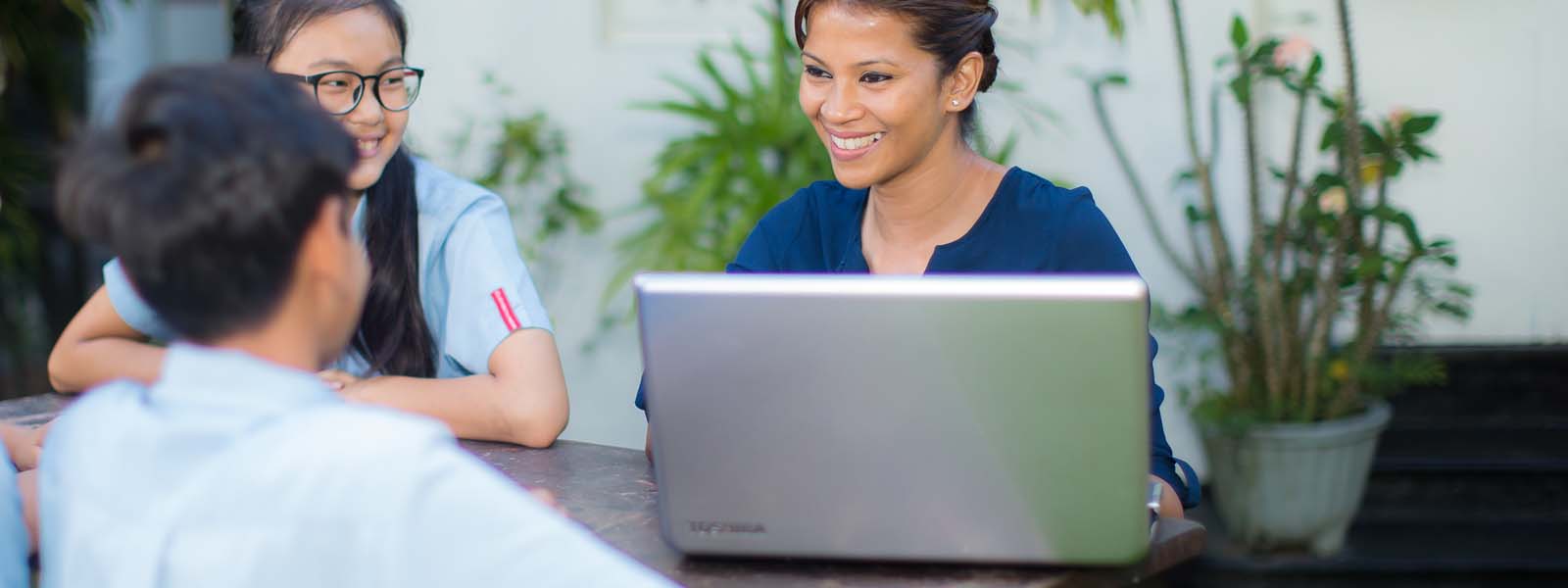
The progress of each student at Elizabeth Moir School is monitored very carefully. Small class sizes help teachers identify if the effort of individual students is diminishing and this is often enough to prevent students working below their potential. There is tremendous co-operation between all teachers in both schools, with regular meetings scheduled to discuss the progress of all the students in a class. If there are concerns about certain individuals, strategies are implemented to address a potential problem.
Children are motivated to work hard by frequent rewards for good work. Students receive grades for both effort and attainment on a regular basis from Junior 1 upwards and certificates are awarded to students on a weekly basis to commend them for good work, effort or improvement, as well as for good behaviour.
Elizabeth Moir School is committed to involving parents in their child's education and giving them regular updates on their child's progress in school. In addition to Reports and Open Days, Class Teachers will be in regular communication with parents throughout the year and parents can meet teachers at any time by appointment.
Reports
Parents receive detailed reports at the end of each term with individually written personal comments from all the relevant Subject Teachers, their Class Teacher and the Head of School.
Open Days
Open Days are held in both schools each term on Saturday mornings to enable parents to meet their child's Class Teacher and Subject Teachers and discuss their progress.
Parents' Evenings
At the start of each academic year, all Junior School parents are invited to listen to class and subject teachers explain what they will be teaching that year. This is an excellent opportunity for parents to find out what their children will be studying, ask questions and familiarise themselves with Junior School staff.
Towards the end of the academic year, Junior 5 parents and students are invited to a Transition Evening at the Senior School. Here, members of Junior 5 are introduced to their teachers for the following year and are given the opportunity to learn a little bit more about life at the Senior School.
At the Senior School, there are annual meetings for students and parents from Form 3 about the students' IGCSE Choices and from Form 5 about their A Level Choices, where they are given more information about the courses and what factors to consider when choosing their subjects. There is also a University Choices Evening for Lower 6th students and parents to advise them on the important decisions they will have to make.
Learning Support
Learning Support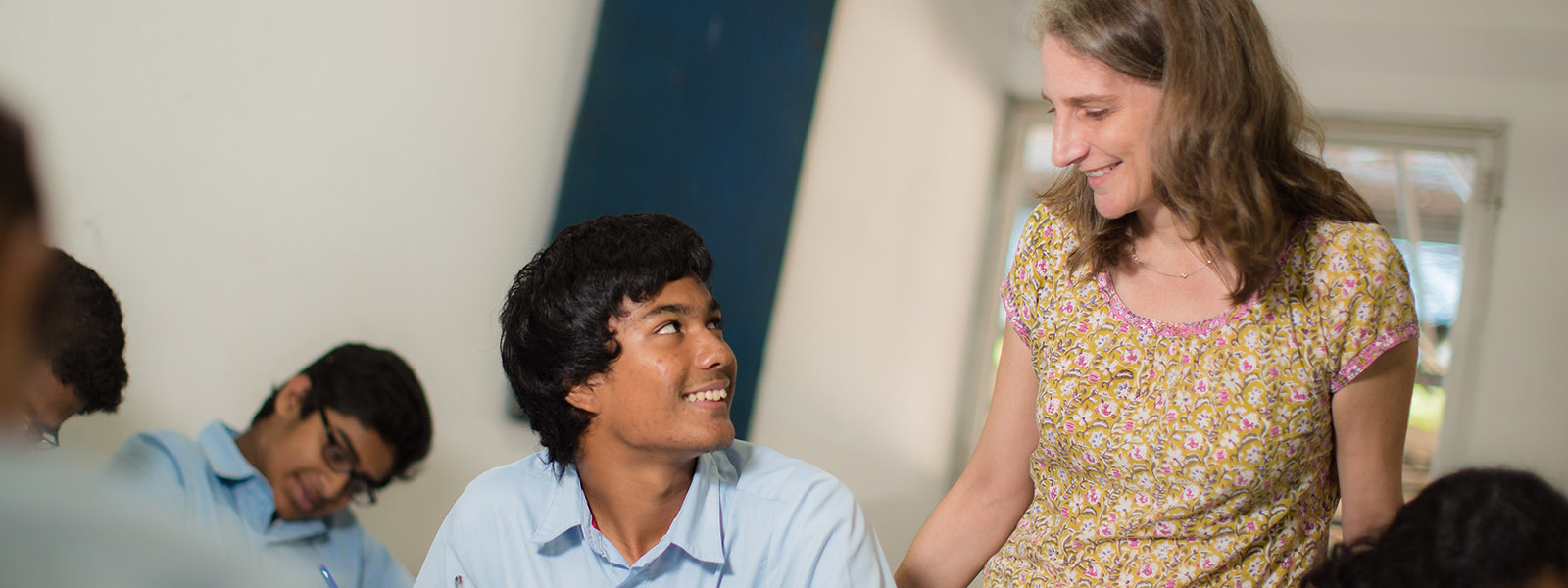
Elizabeth Moir School is committed to giving all students the support they need to cope with academic classes and to individually tailoring the curriculum for each student, so that everyone can move at their own pace.
EFL
With so many countries represented in our school, it is not expected that English will be every student's first language. English as a Foreign Language (EFL) classes are provided at both schools for students whose English is not proficient when they enter school. Students normally become fluent in English extremely fast and are soon able to join mainstream classes.
Curriculum Support
There are Curriculum Support classes in both schools for students who are struggling in a particular subject or have missed work having joined the school midway through a school year, and for EFL students.
At the Junior School, students in this programme study English and/or Mathematics in the Curriculum Support unit and all other subjects with their classes, where they receive modified work. The unit is run by two teachers and the head of this unit has many years' experience at our school. At the Senior School, classes are arranged in students' free periods with a team of specialist subject teachers on hand to help students in any area they are struggling with.
University Guidance
University Guidance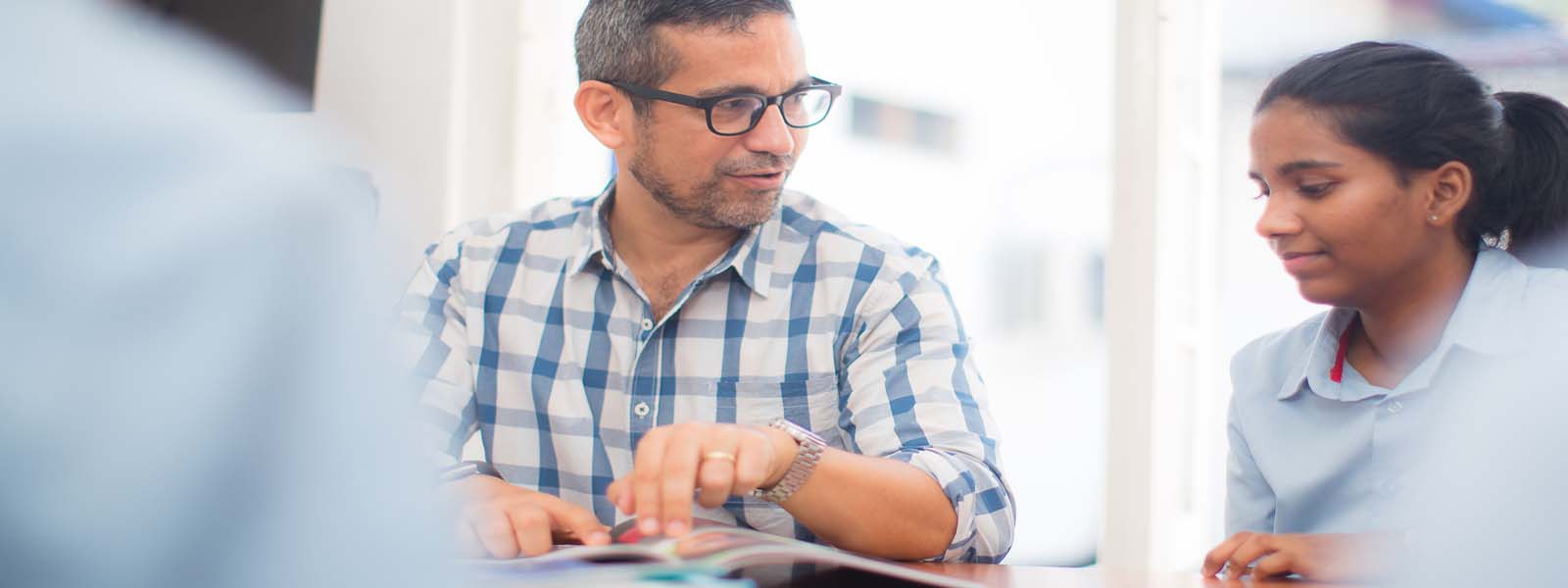
University entrance becomes more competitive and more complicated each year, with more choices available to students but more variability in the quality of the courses offered. Mrs. Moir has thirty years' experience sending pupils to the best universities worldwide so students can rely on her advice to help them select the right course and university. The school's recommendations are valued so much by top universities that several have asked us to nominate students for scholarships on an annual basis.
There is a full-time Universities Co-ordinator who is always available to ensure that students receive the latest information and are guided through every step of the application process. A good application is as important as good grades in gaining admission to top universities and expert advice makes all the difference. Past students have attended universities in the USA, Britain, Canada, Singapore, Australia, Malaysia, Hong Kong, Japan, India and Korea so the school knows how the admissions procedure works in each country and what the top universities are. We also ensure that students required to attend an interview are exceptionally well-prepared, staging mock-interviews and providing detailed feedback.
We appreciate that university fees are hugely expensive for all parents and leave no stone unturned helping students find the financial aid they need to go to the university of their dreams. Students continue to benefit from this support even after they leave the school, some even returning for advice on their postgraduate applications.
Our students go to the traditional bastions of academic excellence - such as Oxford, Cambridge and Imperial in the UK, and Harvard and other Ivy League colleges in the USA - but increasing numbers are also choosing to go to the emerging intellectual powerhouses of the future, such as Hong Kong University and the National University of Singapore. Even though Harvard only normally admits one Sri Lankan student per year, five of our students have won full scholarships there in the past eight years.
